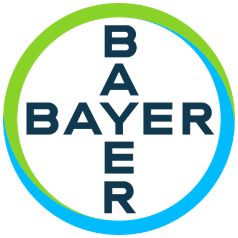A patent case in the Constitutional Court
On 8 December 2022, the Constitutional Court ("CC")of South Africa handed down a judgment in the patent case of Villa Crop Protection (Pty) Ltd v Bayer Intellectual Property GmbH , something that is a rare event.
A regular feature in patent cases – a claim of invalidity

Image source: Wikimedia commons
The case involved a patent held by Bayer for a chemical substance called spirotetramat, which Villa Crop was accused of infringing. Villa Crop countered by claiming that the patent was invalid and also sought to add a new defence to its case. It referred to section 61(1)(c) of the Patents Act,1978 (the "Act") which states that a patent can be revoked if it is not patentable under section 25, which in turn states that a new invention requires an inventive step in order to patentable.
A rare feature in patent cases – a claim of unclean hands
What made this matter interesting was that Villa Crop sought to amend its pleadings in order to raise against Bayer's infringement claim the doctrine of unclean hands. It's important to note that this amendment was in addition to the claim that the patent should be revoked.
This amendment was done by way of a special plea, and it dealt not just with the concept of unclean hands, but also abuse of process and breach of duty of good faith, and it related to the claim by Bayer that the active ingredient of its 2005 patent was a novel ingredient.
The Court of the Commissioner of Patents
Bayer claimed that Villa Crop's proposed plea in limine would introduce a novel ground of revocation. It argued that this was unnecessary because the statutory grounds for revocation are sufficient - lack of novelty and misrepresentation. Recognising unclean hands would, Bayer argued, "destabilise" the patent system.
The first court, the Court of the Commissioner of Patents, agreed with Bayer. It held that Villa Crop could not amend its pleadings in this way. The special plea, had no merit, and therefore the appeal did not raise a point of law of general importance.
The Constitutional Court's judgment
The matter went up to the Constitutional Court, where Judge Unterhalter handed down the majority judgment.. The majority disagreed with the Court of the Commissioner of Patents.
Judge Unterhalter drew an important distinction. He said that the purpose of the invalidity remedy is to revoke the patent. The purpose of the unclean hands doctrine, on the other hand, is to protect the processes of the Court. These two, he said, are quite distinct from one another, and they should both be available to the defendant. The amendment seeking an inclusion of the unclean hands doctrine should therefore be allowed.
The true judicial nature of the power of the courts
The decision of the first court was, said Judge Unterhalter, premised on the fact that infringement and invalidity can only be judged by recourse to the Act. But that was wrong. He said this:
"The binary position fails to appreciate the true judicial nature of the power enjoyed by the courts to prevent an abuse of process, of which the doctrine of unclean hands is a species."
The prevention of abuse - patent law is not exempt
The judge went on to say this: "It suffices to observe that the power of the courts to prevent abuse of process is well recognised. The unclean hands doctrine marks out a species of such abuse. In egregious cases that power may be exercised to non-suit a litigant. The law of patents is not exempted from the application of the doctrine because abuse of process may occur just as surely among litigants who claim rights in the law of patents, as it does among those who would make claims in the law of contract or delict."
Distinct from revocation
The judge went on to say, "The proposed special plea raises prevention of an abuse of process. The proposed special plea invokes the power of the courts to prevent abuse of process. The basis upon which that power is exercised is entirely distinct. It has nothing to do with revocation. The conduct that may constitute abuse is not confined to the particular misrepresentation or false statement references in section 61(1)(g), nor are the averments made in the special pleas so confined."
The amendment should be granted
The judge concluded with these words, "The amendment should be allowed unless it is brought in bad faith, or unless the amendment will cause an injustice to Bayer that cannot be cured by an appropriate order for costs."
In short
The CC showed its reach by allowing the amendment, even though the lower court had initially rejected it. This decision highlights the importance of the courts' power to prevent abuse of process, even in patent law.
The content of this article is intended to provide a general guide to the subject matter. Specialist advice should be sought about your specific circumstances.

